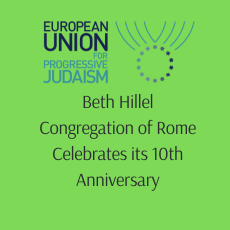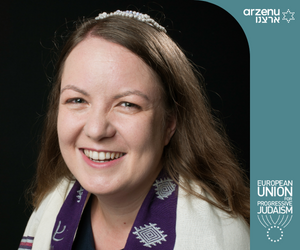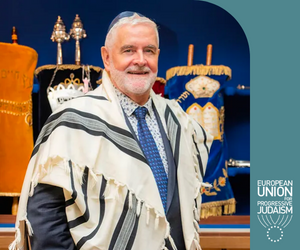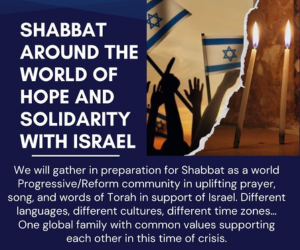Getting to Know Your Neighbours in Amsterdam
By Bill Echikson, EUPJ Brussels Director
When Amsterdam’s Liberal Jewish community moved into a modern new synagogue in the southern part of the city in 2004, tensions between Dutch Jews and Muslims were rising. The September 11 attacks, Mideast tension, and the murder of Dutch right-wing anti-immigrant politician, Pim Fortuyn, and documentary maker, Theo van Gogh, had “polarized the debate,” recalls former synagogue board member, Chantal Suissa-Runne.
Almost four-fifths of students in surrounding neighbourhood schools came from an immigrant background. The synagogue’s first response was to erect formidable security walls. “We were building a fortress around the synagogue and becoming separate from our environment,” Suissa-Runne remembers. “We needed to find a way to reduce tension.”
Suissa-Runne’s solution was “Leer Je Buren Kennen” (Getting To Know Your Neighbour). Supported by the community’s former director, Madelon Bino, Rabbi Menno ten Brink, and the board of the synagogue, the initiative invites entire classes from the local schools into the synagogue for a morning or an afternoon of learning. The aim is for Muslims, Christians, Jews, and others to learn about each other in a relaxed and personal way and to confront prejudices and stereotypes.
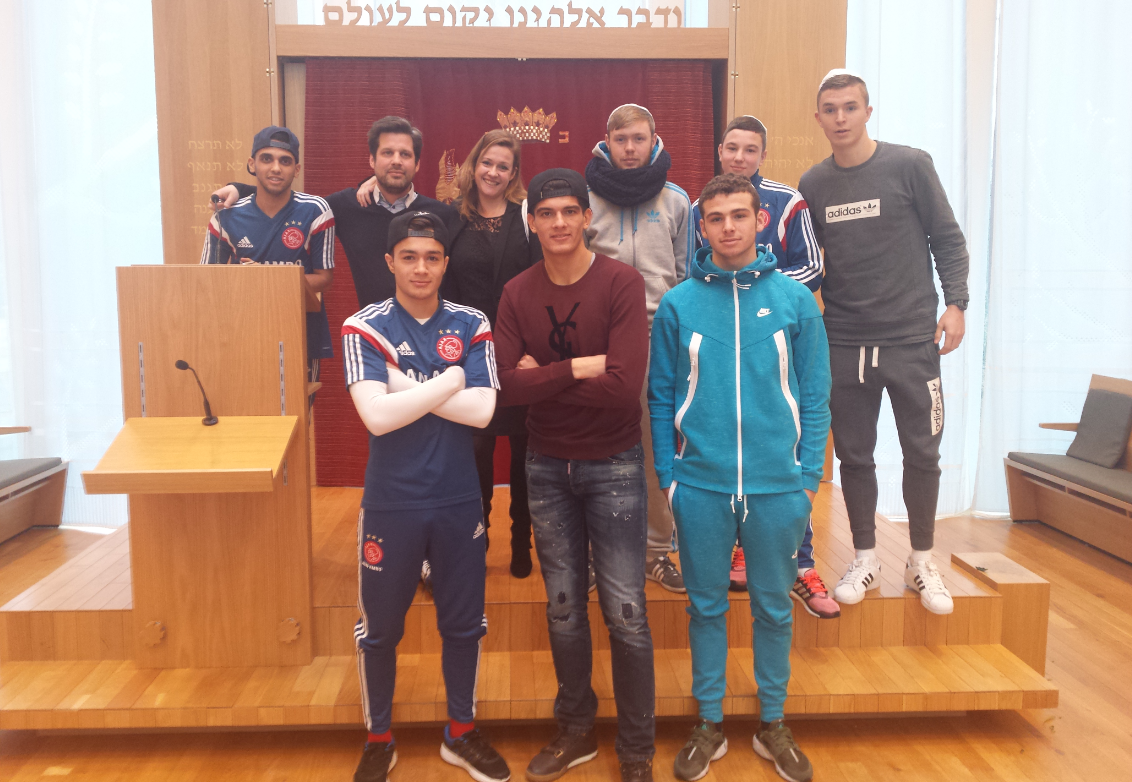
Jewish, Muslim and Christian students visit the Liberal Jewish synagogue in Amsterdam
Since its launch, “Getting to Know your Neighbour” has brought 14,000 students between the ages of 16 and 24 to the Amsterdam synagogue. Encouraged by the success, the initiative has expanded to other Dutch cities. It was awarded the prestigious Brouwer Prize and €100,000 in prize money.
Suissa-Runne’s personal history motivates her work. Her grandmother was a Holocaust survivor who survived five camps, including Auschwitz. Instead of emerging full of hate, Suissa-Runne remembers her as a “beacon of light.
Suissa-Runne grew up in a rural Dutch region with few Jews. She joined Habonim, the Jewish youth movement and she travelled to Israel to work on a kibbutz in the Negev sorting melons alongside Bedouins. “The experience opened my eyes to how Jews could be racist too,” she recalls. Back in the Netherlands, she married and joined the Liberal Jewish Community Synagogue, later becoming its youngest ever board member. Now 40 years old, she devotes most of her time to interfaith activities.
Each “Getting To Know Your Neighbour” visit lasts around one and a half hours. It is much more than a tour through a synagogue. It’s an immersion into Jewish culture and religion. Students start by watching a short compilation of Jewish comedians (such as Sacha Baron Cohen) and comedy shows (such as South Park), which mock Jews and Judaism. The crazy, funny, and insulting content help to break the tension, Suissa-Runne said.
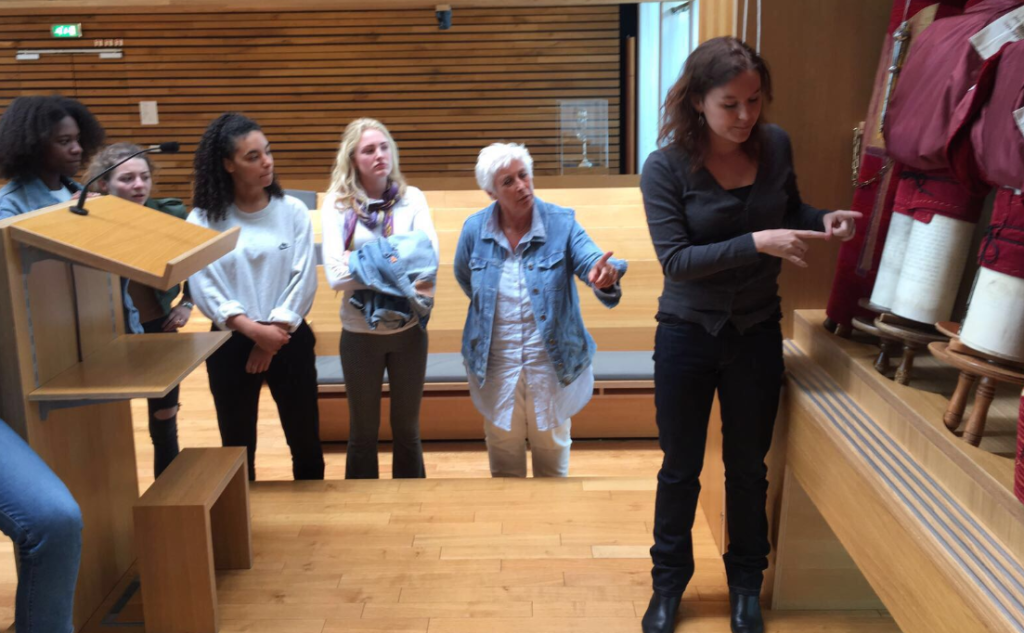
Students are taught about the Torah, the Ark of the Covenant, and more
Students receive a blank piece of paper. Anonymously, they write down the associations they have with Jews and Judaism. The teachers encourage them to be honest. Many of the comments are brutal, full of hate, and very antisemitic. Some decry Jews for money-grubbing. Others accuse them of terrorizing Palestinians. Some even accused Israel of creating ISIS to make Muslims look bad. “For most, it’s the first time that they get to meet a real live Jew,” said Jelle Zijlstra, one of the program’s lead teachers. “They look them in the eye, have a conversation with them, and maybe even begin to like them a bit.”
While many of the Dutch Protestant or Catholic students seem bored during the sessions, Zijlstra said the Muslim students are fascinated. Their passion is not always positive, of course. According to Zijlstra, many come with antisemitic preconceptions that Jews are greedy and powerful. The Israel-Palestine debate often enrages.
One participant, a young Dutch-Arab woman named Fatima, opened the conversation by saying how much she hated Jews.
“What makes you hate Jews?” Suissa-Runne asked her.
“My parents told me how Jews were cheats and liars,” Fatima replied.
During her visit, Fatima started asking her own questions. She asked so many questions that her group overran the allotted time. While she didn’t embrace Jews and Judaism – “She was too proud to admit she might have judged too easily,” Suissa-Runne recalled – Fatima admitted that the visit “was very interesting, very interesting.”
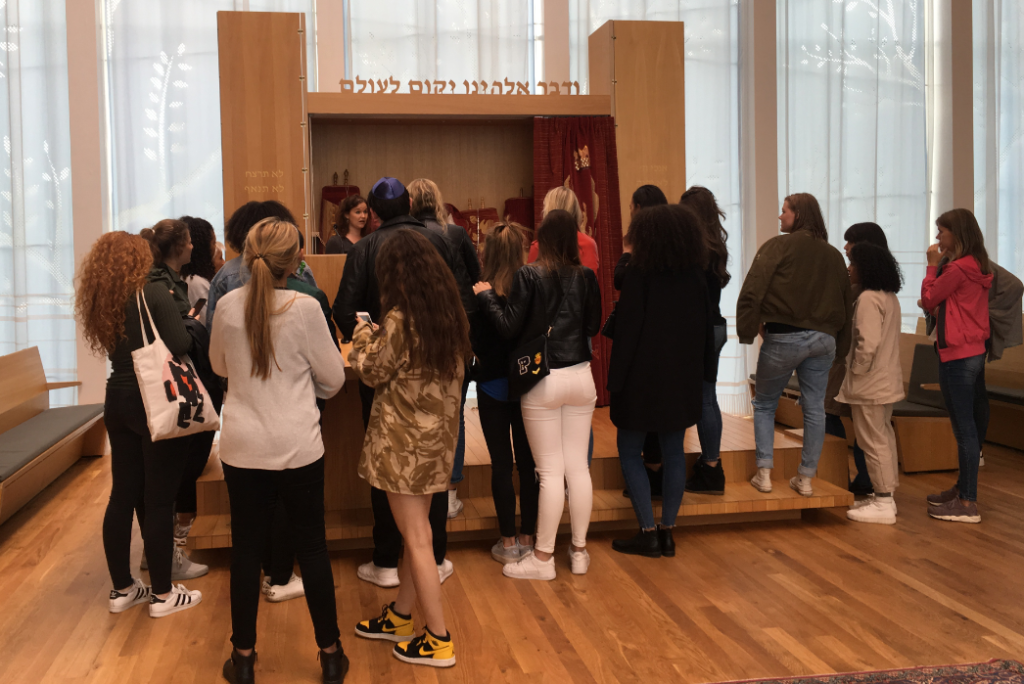
Students are taken on a tour of the synagogue in between sessions
Before leaving, the students are treated to coffee, tea, lemonade, and a traditional Dutch Jewish butter cake.
The program is now expanding. Orthodox Jewish communities are beginning to participate. In the eastern Netherlands, participants include Syrian refugees and many participants of the Turkish community. The “Getting To Know Your Neighbour” team is developing materials for children in elementary school, and Suissa-Runne is hoping to take the project to other European countries with large Muslim and other immigrant communities.
“The project is transferable because the structure is simple and based on a few clear ground rules,” said Zijlstra. “And there’s a need because prejudice about Jews exists everywhere in Europe, particularly in the big cities with Muslim minorities.
The ‘Getting To Know Your Neighbour’ journey will require overcoming obstacles: Jewish communities in the Netherlands are small in number; many cities do not have a working synagogue to visit; and many Jews remain frightened about allowing Muslims into their sanctuary,” Suissa-Runne acknowledges.
Although COVID has slowed the progress of the initiative, synagogue visits are being rescheduled. Although Suissa-Runne has created an online training program she believes the program’s power is in the face-to-face meetings. “We don’t create world peace in an hour and a half,” Suissa-Runne said. “But we do show teenagers that the Jewish world is not just about the Holocaust and Israel; it’s also about religion and culture.”



